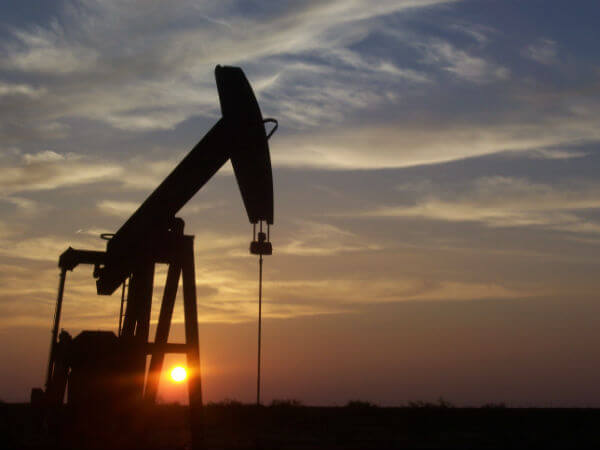Elizabeth Kolbert writes: No one knows exactly how the fire began — whether it was started by a lightning strike or by a spark provided by a person — but it’s clear why the blaze, once under way, raged out of control so quickly. Alberta experienced an unusually dry and warm winter. Precipitation was low, about half of the norm, and what snow there was melted early. April was exceptionally mild, with temperatures regularly in the seventies; two days ago, the thermometer hit ninety, which is about thirty degrees higher than the region’s normal May maximum. “You hate to use the cliché, but it really was kind of a perfect storm,” Mike Wotton, a research scientist with the Canadian Forest Service, told the CBC.
Though it’s tough to pin any particular disaster on climate change, in the case of Fort McMurray the link is pretty compelling. In Canada, and also in the United States and much of the rest of the world, higher temperatures have been extending the wildfire season. Last year, wildfires consumed ten million acres in the U.S., which was the largest area of any year on record. All of the top five years occurred in the past decade. In some areas, “we now have year-round fire seasons,” Matt Jolly, a research ecologist for the United States Forest Service, recently told the Times.
“You can say it couldn’t get worse,” Jolly added, but based on its own projections, the forest service expects that it will get worse. According to a Forest Service report published last April, “Climate change has led to fire seasons that are now on average 78 days longer than in 1970.” Over the past three decades, the area destroyed each year by forest fires has doubled, and the service’s scientists project that it’s likely to “double again by midcentury.” A group of scientists who analyzed lake cores from Alaska to obtain a record of forest fires over the past ten thousand years found that, in recent decades, blazes were both unusually frequent and unusually severe. “This extreme combination suggests a transition to a unique regime of unprecedented fire activity,” they concluded.
All of this brings us to what one commentator referred to as “the black irony” of the fire that has destroyed most of Fort McMurray.
The town exists to get at the tar sands, and the tar sands produce a particularly carbon-intensive form of fuel. (The fight over the Keystone XL pipeline is, at its heart, a fight over whether the U.S. should be encouraging — or, if you prefer, profiting from — the exploitation of the tar sands.) The more carbon that goes into the atmosphere, the warmer the world will get, and the more likely we are to see devastating fires like the one now raging. [Continue reading…]
Bloomberg reports: Wildfires raging through Alberta have spread to the main oil-sands facilities north of Fort McMurray, knocking out an estimated 1 million barrels of production from Canada’s energy hub. Fire officials say the out-of-control inferno may keep burning for months without significant rainfall.
The blaze, forecast to expand to more than 2,500 square kilometers (965 square miles) in the next few days, made an “unexpected” move to the north Saturday, rapidly encroaching bitumen mining operations run by Suncor Energy Inc. and Syncrude Canada Ltd. The fires may soon cover an area the size of Luxembourg.
“It is a dangerous and unpredictable and vicious fire that is feeding off an extremely dry Boreal forest,” federal Public Safety Minister Ralph Goodale told reporters Saturday in Regina, Saskatchewan. He said the swirling fire is not yet a threat to any additional communities.
The wildfires have led to combined productions cuts of more than 1 million barrels of oil a day, or about 40 percent of the region’s output of 2.5 million barrels, based on IHS Energy estimates. The cuts, and the mass exodus of more than 80,000 people from the fires raging in Fort McMurray, represent another blow to an economy already mired in recession from the oil price collapse. [Continue reading…]
The Los Angeles Times reports: Though the cause of the fire has not been determined, the inferno has become symbolic of the tension within Canada over its role in climate change.
Some Canadians see the fire as nature lashing back at those who mistreat it in the name of profit.
Others see the hard science: a wildfire formed in conditions consistent with climate change striking with academic irony, not vengeance, in a place that helps supply the world with a fossil fuel. The evacuees were really climate refugees, they say.
Still others view it as just very bad luck, a setback the oil industry will find a way to overcome.
The debate reflects a country wrestling within itself at a difficult moment — and it is testing that famous Canadian civility.
A provincial politician who called the fire “karmic” was quickly castigated and later apologized. When Canadian Green Party leader Elizabeth May said the fire was “very related to the global climate crisis,” Prime Minister Justin Trudeau suggested she was making “a political argument.”
Some environmentalists have been accused of lecturing to or, worse, condemning people who have lost everything. In Fort McMurray, more than 2,000 structures were consumed by the flames.
“I wish I could kick every person posting ‘That’s what you get for living by the oil sands’ comments,” a young Edmonton woman tweeted Tuesday evening at the peak of the evacuation, when flames were whipping across Highway 63, the only road out of Fort McMurray. “You’re terrible people.”
Janet Keeping, the Green Party leader within Alberta, was among several people who invoked climate change early in the week — and did so without clearly expressing support for fire victims. She soon tried to strike a new chord.
“Caring about people means caring about #climatechange,” Keeping wrote Thursday on Twitter.
Alberta’s oil sands are said to hold the third largest reserves in the world, after Saudi Arabia and Venezuela. They made Alberta rich even as they have made Canada uneasy.
Conservation groups have long despised the intensive extraction process involved in gleaning crude from the sands — Alberta would have been the source for the Keystone XL oil pipeline that President Obama rejected last year — and many Canadians loathe what they view as an excessively capitalist culture in Fort McMurray. [Continue reading…]






